Lagos State, Nigeria
The Africa Social Impact Summit began today, July 13, 2022, at the Transcorp Hilton in Abuja, with many participants at the hybrid event, including policymakers, academics, investors, DFIs, non-governmental organizations, business leaders from the private sector, chambers of commerce, and representatives from the international community.
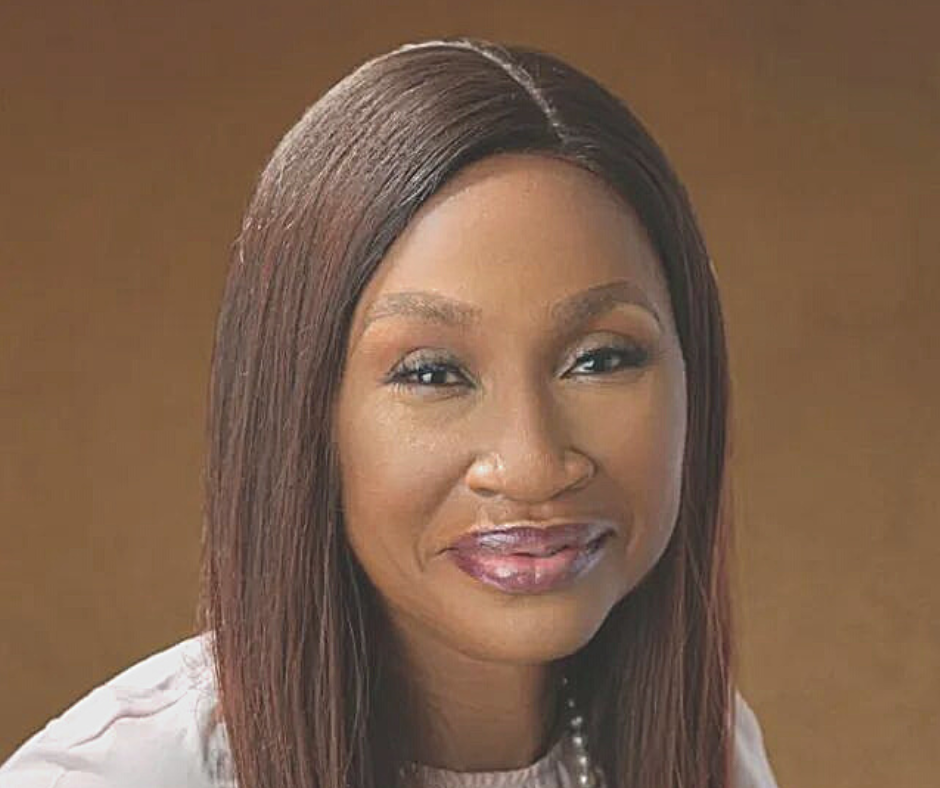
LAGOS, NIGERIA, 13 July 2022 — “We want to get sustainability ingrained into the DNA of businesses,” said Mrs. Oluwasoromidayo George, Chair, UN Global Compact Network Nigeria & Director, Corporate Affairs and Sustainable Business, West Africa, Unilever Nigeria. She stated this at a press briefing held in preparation for the Africa Social Impact Summit.
Mrs. George asserted that the Summit was timely because the effects of the COVID-19 pandemic, climate change, the global crisis in terms of the wars in Ukraine, and disruptions in the supply chain have resulted in increasing poverty in Nigeria and the entire African continent. She insisted that the UN Global Compact’s work is essential to the event’s goals as the largest sustainability initiative in the world.
According to her: “We pride ourselves on helping businesses to entrench the Ten Principles, which cut across Labour, Environment, Anti-corruption and Human Rights.”
“We believe that this partnership with Sterling One Foundation will be able to make the right impact in promoting greater multi-functional collaboration in addressing some of Africa’s most significant sustainability challenges,” she concluded.
In a signed press statement, Naomi Nwokolo, UN Global Compact Network Nigeria & Chair, African Regional Network Council-United Nations Global Compact, called for more collaborative efforts to close the gap in achieving the Sustainable Development Goals (SDGs).
In her words, “Meeting the SDGs in less than eight years will necessitate the continued mobilization of large-scale public and private resources.”
“As custodians of capital, corporate leaders are uniquely positioned to integrate corporate financing with the SDGs and collectively find innovative, long-term solutions to Africa’s developmental issues,” she added.
The CEO of Sterling One Foundation, Olapeju Ibekwe, stated that the objective of the event was to drive collaboration. She recognised the importance of convening relevant decision-makers and C-level executives across Africa.
“We are bringing together policymakers from the public and private sectors to decide on how we are going to be collaborative going forward toward driving specific goals on major issues of our polity today.”
“We have to bring ourselves to a place where we can identify problems and devise a means to tackle them.”
The Summit, whose theme is “Rethink, Rebuild, Recover—Accelerating Growth For The SDGs,” focuses on climate solutions, the circular economy, health, renewable energy, agriculture, and WASH.
In his welcome address, Abubakar Suleiman, MD, Sterling Bank and Board Member, Sterling One Foundation, reminded the participants that whatever value is created by corporate entities must solve a bigger problem in society.
“I think we should be bold enough to ask those who develop economic theories to review and reevaluate them to better accommodate the critical aspects of society. Impact investing should not be viewed as an afterthought.”
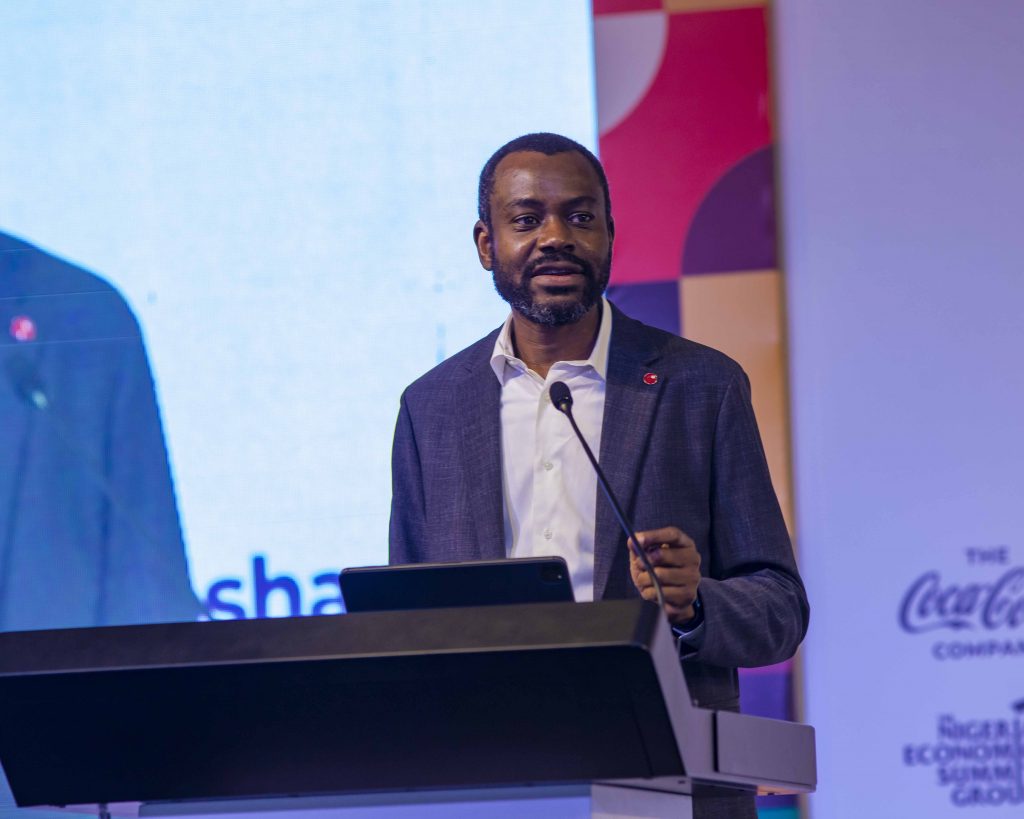
“Merely convening at a summit is not enough! The private sector, sustainability experts, NGOs, impact investors, and the government must harmonise efforts to scale up development,” he said.
Sanda Ojiambo, Assistant Secretary-General & CEO of the UN Global Compact, emphasised the significance of business commitment in advancing the 2030 Agenda for SDGs. She noted that the COVID-19 pandemic resulted in further setbacks, thereby causing wider social and economic inequalities.
“Women faced a vast and stubborn economic gender gap. Greenhouse gas emissions and global warming are trending well above the limit set by the Paris Climate Agreement,” she revealed.
The Assistant Secretary-General stated that with the new normal, business as usual is no longer an option. For businesses to build forward, better from COVID-19, they have to sign on to the Ten Principles of the UN Global Compact, which provides a pathway to doing business responsibly and sustainably.
While delivering his keynote speech, Matthias Schmale, Resident and Humanitarian Coordinator (Nigeria), expressed deep pleasure with the organisers at the timely gathering of business enterprises, thought leaders, impact investors, and development practitioners who share a common goal of realising the development aspirations of people across the continent and achieving not just the UN 2030 Agenda and African Union 2063 Agenda.
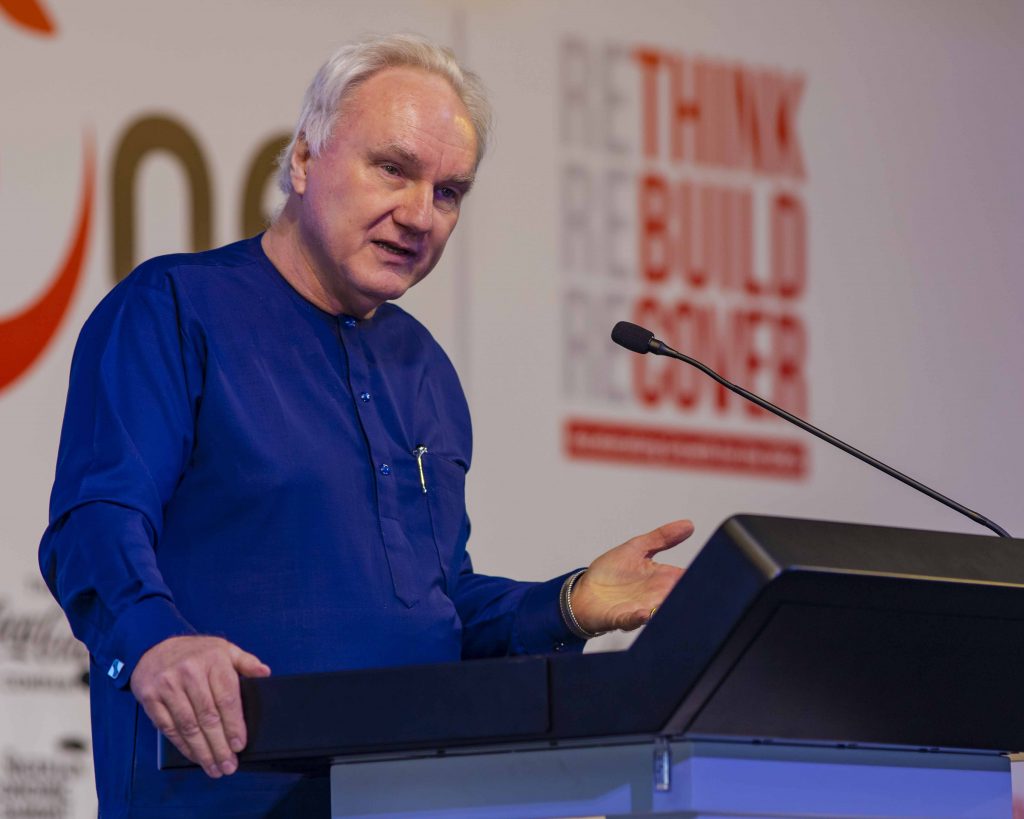
He acknowledged the need for effective collaboration in accelerating sustainable growth in Africa.
“We must roll in the same dimension to achieve the African aspirations for 2063, which aligns with the SGDs.”
“The theme of the summit is apt, as Nigeria is critically important to the 2030 Agenda. After almost 8 months in Nigeria, I am inspired by many captains of industry and leading business managers who are women.”
We must learn from the positive examples of achieving gender equality in African economies. There is evidence that empowering women and girls helps expand economic growth, ” he noted.
In his goodwill message, British Deputy High Commissioner, Lagos, Ben-Lewellyn James, stated that the world was facing a series of challenges – from the war in Ukraine, the global inflation crisis, and Nigeria—which have caused a strain on sustainable development.
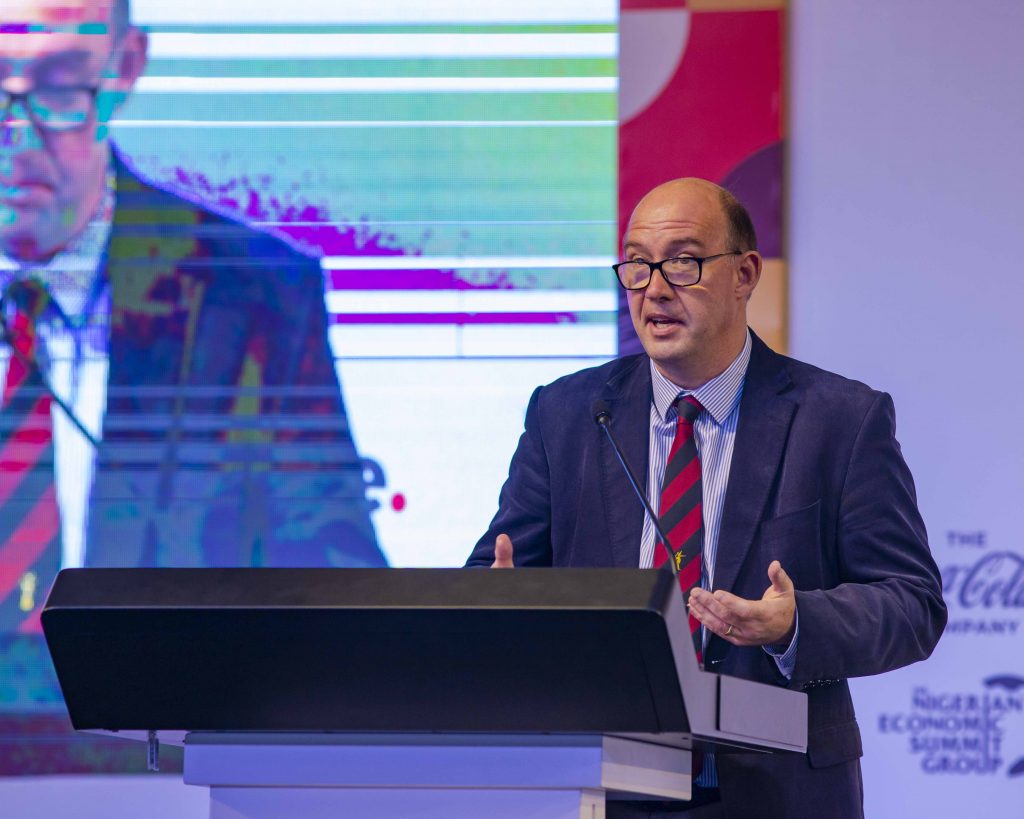
“For us, the UK government, the challenges shouldn’t cloud our judgment on the need to address the issues of sustainability practically in dealing with climate change.
“We are working with state governments and Nigerian companies to support sustainable supply chains and agricultural commodities. Although there are difficulties for businesses in Nigeria, they must be resolved.
He said, “We are absolutely certain that there is work to be done, and with initiatives like this, we hope that it is taken forward.”
Patricia Obozuwa, Vice President, Public (Government) Affairs, Communications & Sustainability, Africa, Coca-Cola, disclosed that as each party drives towards the 2030 Agenda, they must prioritise continuous community engagement as the key to sustainable development.
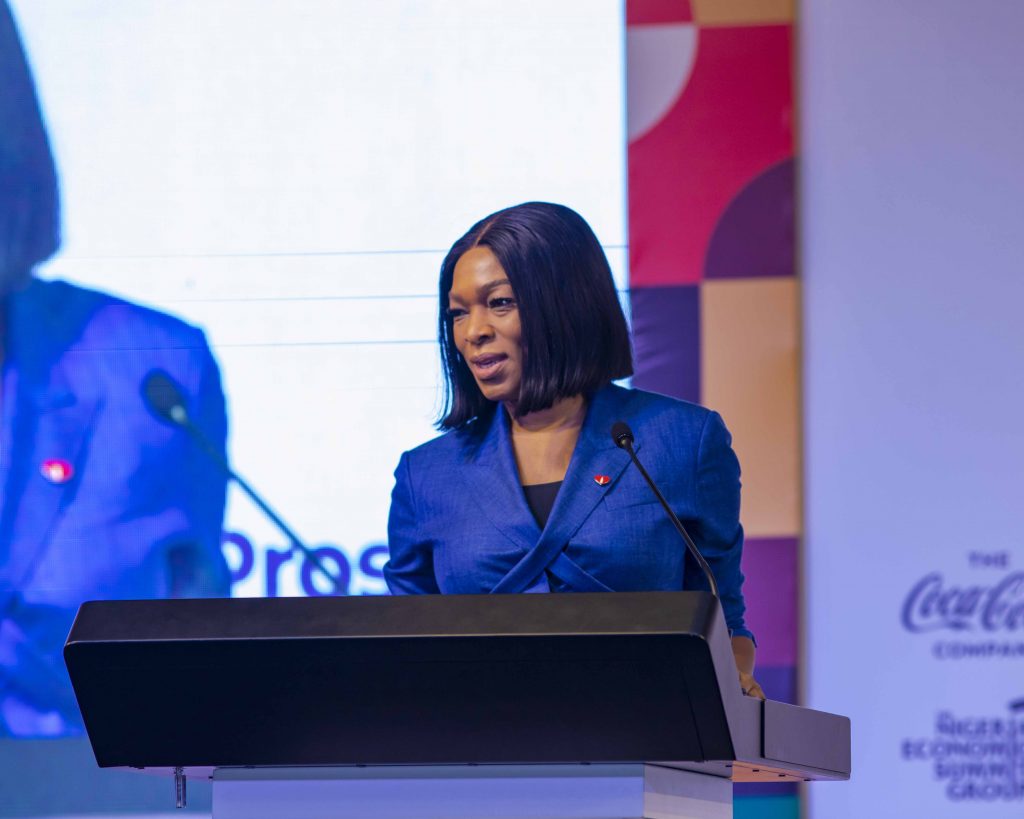
“Through strategic partnerships with like-minded organizations, we plan to accelerate our impact and scale our interventions as well as leverage collaborative investments from the Coca-Cola Foundation and other partners.”
“Multilateral efforts will be required to address the challenges of food security and climate change in the long term. The barriers that lie ahead for the attainment of the 2030 Agenda can’t be ignored. The SDGs provide time-bound targets for every sector, including health, education, employment, energy, infrastructure, and the environment.”
“There remains a need to scale our efforts significantly as we work towards achieving these targets in Africa,” she said.
Several panel discussions were held, giving attendees the chance to learn more about the key themes of impact investing, education, primary healthcare, climate action, governance, and youth development.
State and non-state actors, social entrepreneurs, domestic and foreign investors, and Babajide Sanwo-Olu, Governor, Lagos State, Zainab Ahmed, Hon. Minister of Finance, Budget and National Planning, Dabesaki Mac-Ikemenjima, Senior Program Officer, Ford Foundation, Daniel Ikuenobe, Country Director, Tony Blair Institute, Malawi, were among the speakers and panelists. They were also joined by Emmanuel Etaderhi, SVP, FMDQ and Executive Secretary, Financial Center for Sustainability, Olapeju Ibekwe, CEO, Sterling One Foundation, Mories Atoki, Chief Executive Officer, African Business Coalition for Health (ABC Health), Femi Taiwo, Board Member, UN Global Compact Network Nigeria, and Executive Director, LEAP Africa, among others.
Sterling Bank, The Coca-Cola Company, Impact Investors Foundation, VDF Group, Giving, Nigeria Climate Innovation Centre, Nigerian Economic Summit Group (NESG), ProShare, TechCabal, and Ventures Africa are some of the Summit’s partners.
The Africa Social Impact Summit continues tomorrow, 14 July, with more panel discussions and presentations from social entrepreneurs, local and international investors, the private sector, and the representatives of governments—who will map out the future of finance and investment as a driver of development, value creation, and social impact.
